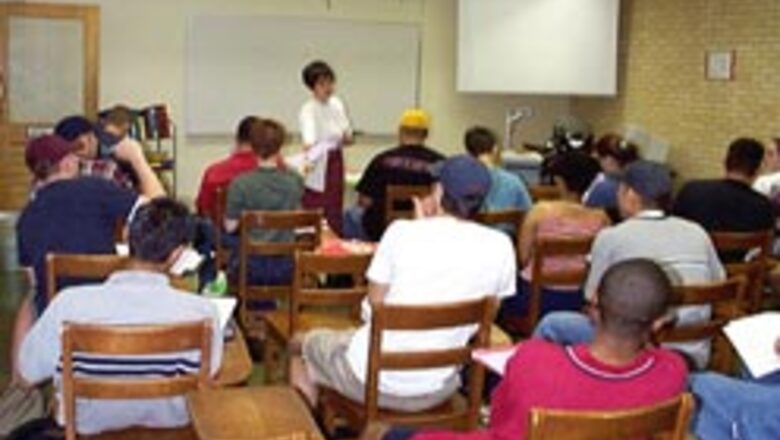
views
London: If you’re hoping that school based projects inform kids about HIV and other sexually transmitted infections, as well as unplanned pregnancy, well you might be mistaken.
A new study in the British Medical Journal has found that such efforts did little to change behaviour of kids in Mexican schools.
The study involved nearly 11,000 students from 40 public high schools in Mexico, who participated to assess the effects of an HIV prevention programme that promoted condom use and emergency contraception.
As a part of the study, children at 15 schools were given a HIV prevention course that promoted condom use.
In another 15 schools, kids were given the same course plus a module on emergency contraception, while 10 schools acted as controls and continued with the existing sex education course.
Students were surveyed at the start of the study and at four months and 16 months.
The researchers found that while students who attended the emergency contraception education, reported an increased use in contraceptives, on the whole neither strategy had any affect on reported condom use or sexual behaviour.
The authors said that the study showed that current sex education courses given at school were not producing the desired results, and though they educate effectively, they fail to have an impact on sexual risk behaviour.
"Our study adds to the growing body of evidence that current HIV prevention efforts based in school do not alter sexual risk behaviour, and suggests that current interventions educate effectively but may not change sexual risk behaviour," the BMJ quoted the authors, as saying.
"New strategies are urgently needed to combat HIV and other sexually transmitted diseases and unplanned pregnancy among adolescents," they concluded.




















Comments
0 comment